Another highlight from NRS 15051 Schools Photographic collection are photos documenting school children’s participation in the war effort during World War I (WWI).
School children were among the many groups who put their hand to providing comforts for troops at the front.
Organisations such as the Red Cross and the Soldiers Sock Fund encouraged people from all walks of life to knit socks to send to soldiers.
Without the means to wash or dry clothing, new clean socks were greatly needed by soldiers in an effort to ward against trench foot which was rife in the cold, wet mud of the trenches.
For more WWI related content online, see the State Records NSW Centenary of Anzac website.
Corowa Public School, 1917, measuring the number of socks knitted using ‘the sock barometer’. A grand total 140 pairs were completed:
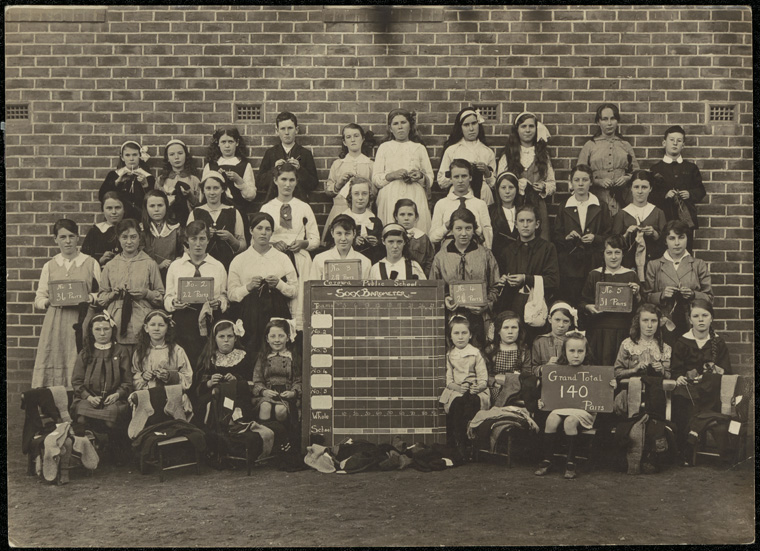
Caption: Corowa Public School – sock barometer, grand total 140 pairs
Digital ID: 15051_a047_003367.jpg
Date: year only 01/01/1917
A newspaper article sourced from Trove emphasises the need for socks by troops at the front and encourages the knitters of NSW to contribute:
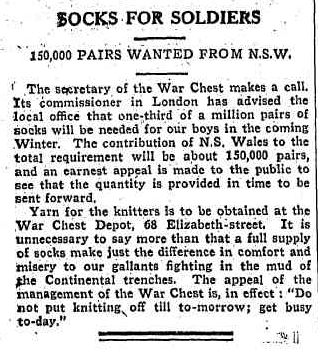
1918 ‘SOCKS FOR SOLDIERS.’, The Mirror (Sydney, NSW : 1917 – 1919), 10 May, p. 3, viewed 17 September, 2014, http://nla.gov.au/nla.news-article136728185
Coonamble Public School, 1918, Red Cross Workers at the Superior Public School:
![Caption: Coonamble Public School - Red Cross Workers Superior Public School Coonamble [spinning and knitting] Digital ID: 15051_a047_003294.jpg Date: year only 01/01/1918](/wp-content/uploads/2014/09/15051_a047_003294.jpg)
Caption: Coonamble Public School – Red Cross Workers Superior Public School Coonamble [spinning and knitting]
Digital ID: 15051_a047_003294.jpg
Date: year only 01/01/1918
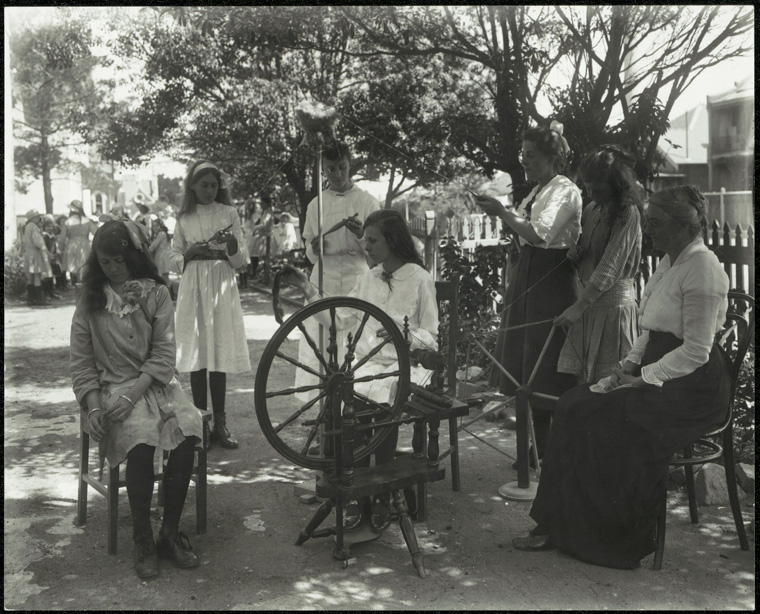
Caption: Bondi Public School – spinning wheel
Digital ID: 15051_a047_001478.jpg
Date: month and year only 31/10/1916
Camperdown Public School, 1916, knitting socks:
One of our Archives Outside readers has kindly provided us with images of “The Grey Sock”, a booklet produced by the Soldiers’ Sock Fund in 1914. The booklet provides instructions for knitting socks for soldiers.
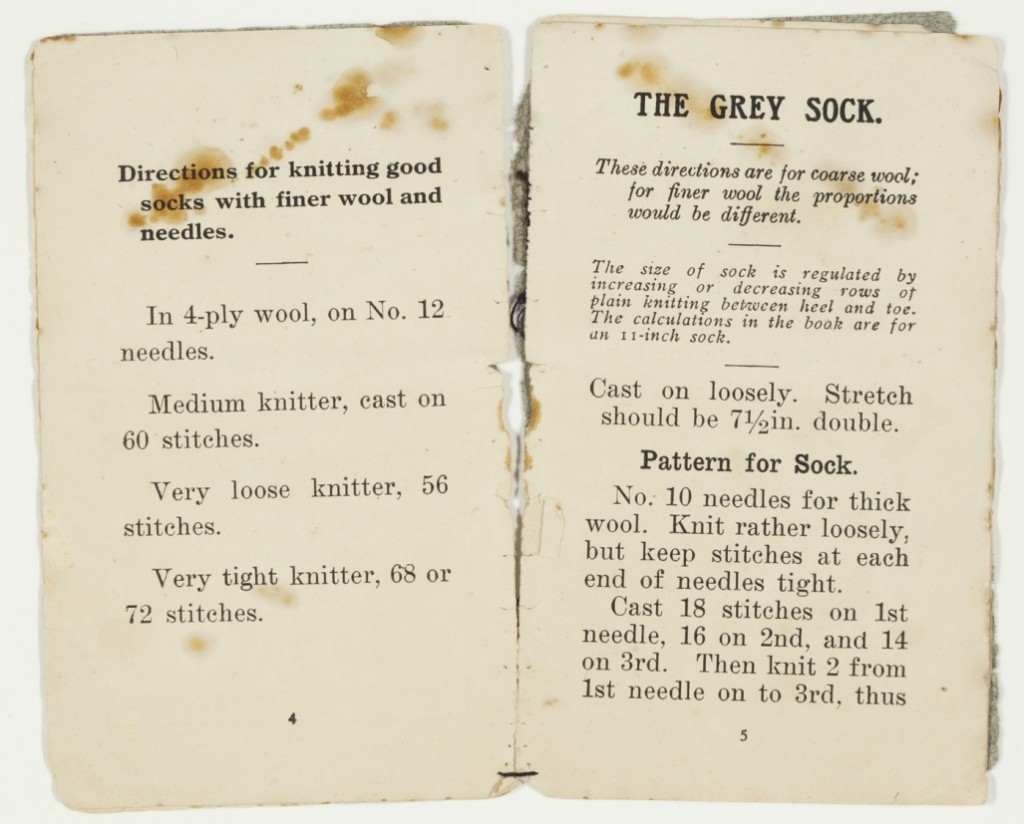
“The Grey Sock” – Soldiers’ Sock Fund booklet 1914
Contributed by Archives Outside reader Rhonda Cetta-Hoye
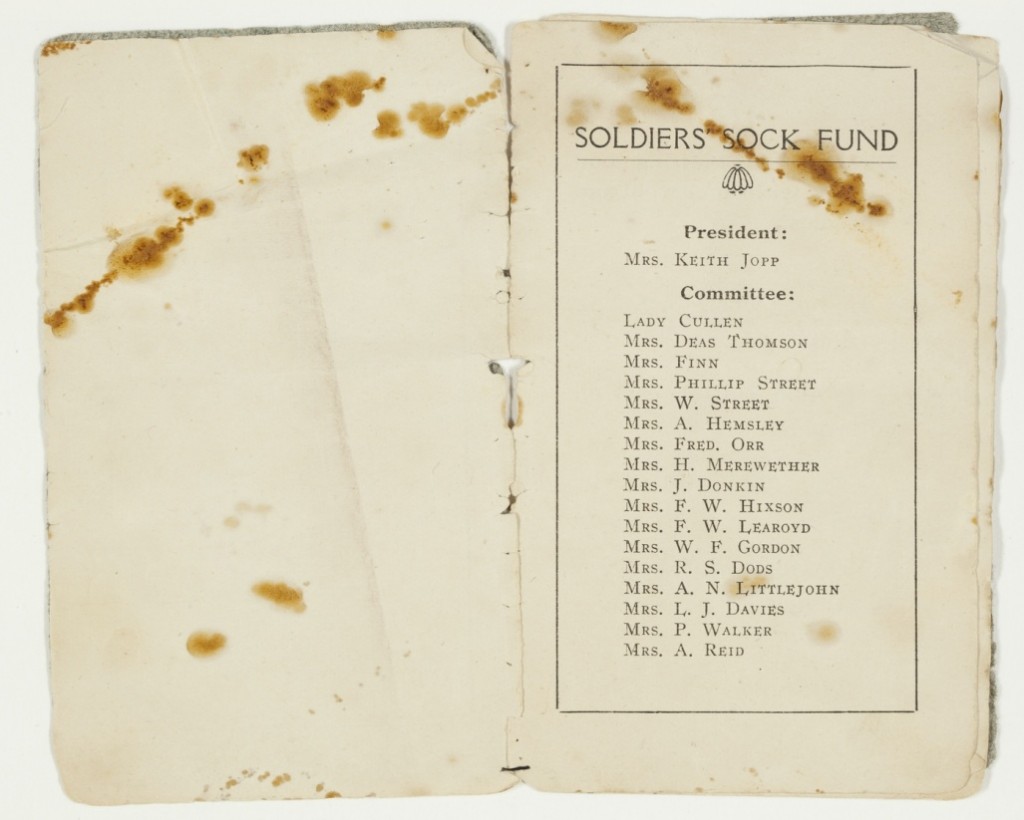
“The Grey Sock” – Soldiers’ Sock Fund booklet 1914
Contributed by Archives Outside reader Rhonda Cetta-Hoye
References and further reading:
“Australian Comforts Fund World War I”, Museum Victoria, available from http://museumvictoria.com.au/collections/themes/1848/australian-comforts-fund-world-war-i
“Booklet – The grey sock 1914”, Powerhouse Museum, available from http://www.powerhousemuseum.com/mob/collection/database/?irn=10108&search=patriotism&images=&wloc=&c=1&s=0
“Homefront – World War I and Australia”, State Library NSW, available from http://guides.sl.nsw.gov.au/content.php?pid=489033&sid=4179071
“Knitting for the Troops” Australian War Memorial, available from https://www.awm.gov.au/blog/2013/10/25/knitting-troops/

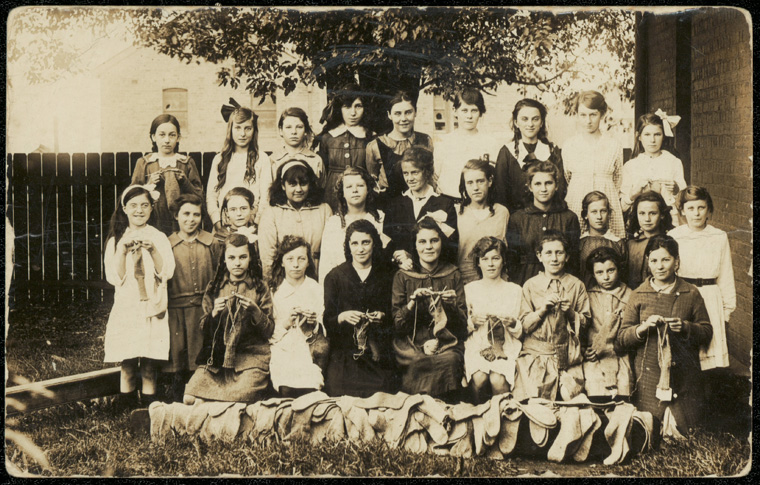
Jill Forster says:
Just read the article on children knitting Socks for Soldiers. My
father born in 1911 used to talk about this. He suggested the only
soldier that could wear his hand knitted socks would have to be
deformed. Apparently 4 needle knitting wasn’t so easy for a six
year old boy. He also used to put notes for the soldiers in the
toe of the sock!
Dorothy Shaw says:
I am 95 years old. I have my Grandmother’s WW1 sock knitting needles–4, yellowed with age, with red and blue protective caps (all celluloid, I believe) at each end. The elastic thread which holds them together is intact. Each needle has one blue tip, one red tip.
Anna Gray says:
Dorothy, that’s a fantastic connection to the past. So nice that you’ve kept them – I’m sure your grandmother would be pleased!